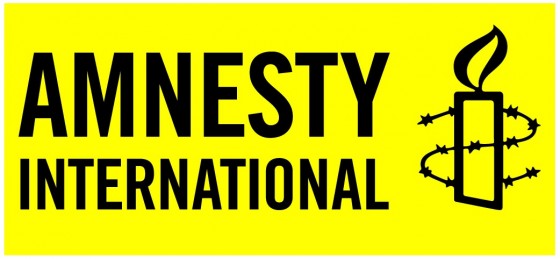World News
Disappearances and Torture in Southern Yemen Detention Facilities must be Investigated as War Crimes: Amnesty
July 13, 2018 | By Sikh Siyasat Bureau
London: Justice remains elusive a year after a network of secret prisons was first exposed in southern Yemen, Amnesty International said in a new report today that documents egregious violations going unchecked, including systemic enforced disappearance and torture and other ill-treatment amounting to war crimes.
“God only knows if he’s alive” details how scores of men have been subjected to enforced disappearance after being arbitrarily arrested and detained by United Arab Emirates (UAE) and Yemeni forces operating outside the command of their own government. Many have been tortured, with some feared to have died in custody.

Amnesty International [File Photo]
“The families of these detainees find themselves in an endless nightmare where their loved ones have been forcibly disappeared by UAE-backed forces. When they demand to know where their loved ones are held, or if they are even still alive, their requests are met with silence or intimidation,” said Tirana Hassan, Crisis Response Director at Amnesty International.
“Scores of detainees have been released in recent weeks, including a few of the disappeared. But this comes after extended periods of being held without charges, in some cases up to two years, highlighting the need for holding perpetrators to account and ensuring remedy for the victims.
Since joining the conflict in March 2015, the UAE has created, trained, equipped and financed various local security forces known as the Security Belt and Elite Forces. It has also built alliances with Yemeni security officials, bypassing their leadership in the Yemeni government.
Amnesty International investigated the cases of 51 men detained by these forces between March 2016 and May 2018 in Aden, Lahj, Abyan, Hadramawt, and Shabwa governorates. Most of the cases involved enforced disappearance, and 19 of these men remain missing. The organization interviewed 75 people, including former detainees, relatives of those still missing, activists, and government officials.
Families of the detained search in vain
Families of the detainees told Amnesty International about their desperate search for information. Mothers, wives, and sisters of those forcibly disappeared have been holding protests for nearly two years now, making the rounds between government and prosecution offices, security departments, prisons, coalition bases, and various entities handling human rights complaints.
The sister of a 44-year-old man who was arrested in Aden in late 2016 told Amnesty International:
“We have no idea where he is, God only knows if he’s alive. Our father died of a broken heart a month ago. He died not knowing where his son is.
“We just want to know our brother’s fate. We just want to hear his voice and know where he is. If he’s done something, aren’t there courts to try them? At least put them on trial, let us visit them. What is the point of courts? Why disappear them like this?”
Some families said they were approached by individuals who told them their relatives had died in custody, only for this to be denied when they checked with the leadership of the UAE-backed Yemeni forces.
“If they would just confirm to us that my brother is alive, if they would just let us see him, that’s all we want. But we can’t get anyone to give us any confirmation. My mother dies a hundred times every day. They don’t know what that is like,” said the sister of a detainee who was forcibly disappeared after his arrest in September 2016 and who is widely rumoured to be among those who died in custody.
Torture of detainees by UAE-backed forces
Amnesty International’s report documents the widespread use of torture and other ill-treatment in Yemeni and Emirati facilities.
Current and former detainees and families gave horrific accounts of abuse including beatings, use of electric shocks and sexual violence. One said he saw a fellow detainee being carried away in a body bag after being repeatedly tortured.
“I saw things I do not want to see again. In that place, you do not even see the sun,” said a former detainee who was held at Waddah Hall, a notorious informal detention facility in Aden operated by a local counter-terrorism unit. “They were making all sorts of accusations [against me]. They started beating me… Then one day, they released me at night, they said they had me confused with someone else … ‘It was a mistaken identity, sorry.’ It was as if they had done nothing after all the suffering I endured from electric shocks.”
Another former detainee said UAE soldiers at a coalition base in Aden repeatedly inserted an object into his anus until he bled. He said he was also kept in a hole in the ground with only his head above the surface and left to defecate and urinate on himself in that position.
To Get Sikh Siyasat News Alerts via WhatsApp:
(1) Save Our WhatsApp Number 0091-855-606-7689 to your phone contacts; and
(2) Send us Your Name via WhatsApp. Click Here to Send WhatsApp Message Now.
Sikh Siyasat is on Telegram Now. Subscribe to our Telegram Channel
Related Topics: Amnesty International, Amnesty International India, Human Rights




